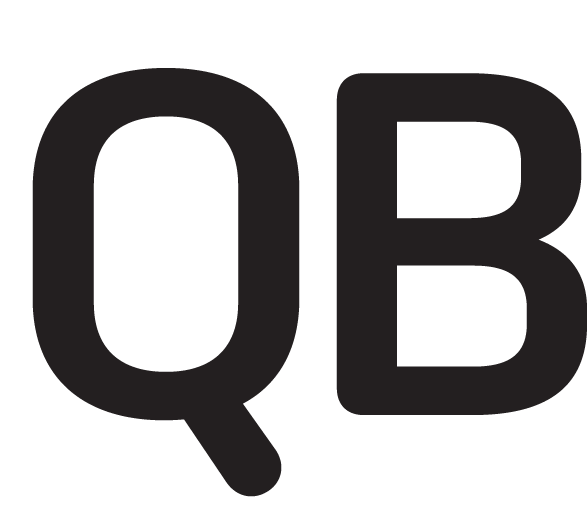You Need to Sell the Best Salespeople!
Dear Stephen,
I own a mid-size contract furniture manufacturer. Roughly $50 million in sales annually. I don't want to reveal what company; I just want to tell you about my circumstances and ask your opinion about my current hiring situation.
We use our own direct sales reps in most markets in the country, and we're constantly looking for great talent. My hiring profile is that I generally look to hire salespeople who have good relationships with the A&D community. You know, the ones who know Gensler, SOM, HOK… We can teach anyone about our product, which is only sold through dealers, but what's valuable to us is the existing relationships that the salesperson has that they can transfer to our brand. I'm willing to pay a premium for that individual.
I have a well-designed niche product, and my problem is I feel like I shouldn't have to sell a job with my company as hard as I am.
At some point in the interview process, I feel myself resenting the candidate if I have to work too hard to attract them.
When I attend BIFMA meetings, or talk to our dealers, I hear the same sentiment from other owners about having to beg salespeople to work for them. These could be friends of mine who make a one-of-a-kind desk chair… Some manufacture iconic brands… Others own dealers… Everyone hates begging salespeople to work for them!
Should I just be focusing on people who want to work here? Trouble is, when I find those people, they're typically at the end of the runway on their career, or I'm always suspicious as to why they're even looking to begin with.
How do I avoid hiring someone that I'm eventually going to resent because I had to beg them to take the job? Should I just pass?
Signed,
Don't Make Me Beg
————————————————————————
Dear Beg,
My answer may sound counterintuitive, but typically, in recruiting, the more difficult it is to get a sales candidate to "yes," the better the candidate tends to be. Think of it less like begging, and more like persuading—or rather, sellingthem on your company. You're misconstruing what really is just good recruiting for begging.
Let's face it—good salespeople are always in demand, and they know it. Chances are, the type of candidate you're describing has a great job already and they need you to sell them. You should focus on attributes that your company offers beyond the almighty dollar; the money definitely needs to be better than what they're making, but the career opportunity needs to be greater as well. Here are some examples of how you can be enticing them—
If they come to work for your company, can you see them in a management or other elevated role in the next 3 years? If so, tell them what the future career path is.
Can you offer this salesperson better accounts in addition to the ones they currently have? One of the main reasons why salespeople tell us they will leave one job for another is to be able to call on new accounts, especially when they're calling on architects and designers. As we all know, there is always that one person that's already calling on Gensler in each company. If you could offer that or a similar level of account to a new salesperson, that's another way to close them. Maybe even split an existing account another salesperson already has.
Do you have better health care, 401(k), and holiday benefits than your competitors? Maybe you offer a luxury gym membership or a better working environment? These are some of the reasons why people tell us they change jobs in the end.
In addition to in-office interviews, take the candidate out to lunch at a nice restaurant so you can get to know each other better than in that more formal environment. Let the candidate see that you're a person who cares about their employees.
Ultimately, this is what I'm getting—you have a bad attitude about hiring a top heavy-hitter because they deserve to be put on a pedestal, and if you're not willing to do that, someone else will.
You get what you pay for, and in this case, I'm not talking about money but rather your personal effort and attitude. Every time I meet with the owner of a hybrid seating company or a specialized desk or fine casegoods product, the owner always feels that they have the best product on the market. And maybe they do! They feel any salesperson would be lucky to work there. Unfortunately, the salespeople don't always agree. That just means you still need to sell these reps; otherwise it's just another sales job for them.
I'm getting a big red flag from you, which is, if you're already building resentment before you even hire someone, then hiring them is a huge mistake. You're already off on the wrong foot, and the second sales slump for any reason (which isn't always in a salesperson's control), you're going to blame them and it will sour the relationship. If you can't heed that advice, go back to that end-of-the-runway candidate that's dying to work for you and take your chances with them.
My advice is be more realistic about how hiring works. Great products need great salespeople, and assuming you have a great product, you need to sell that person on your brand, your culture, and the future they can have with your company. Make it about them.
I never understand when a client tells me they only want to hire someone who wants to work there. (This is especially true when I'm recruiting for a dealer!)
Remember—there's nothing wrong with hiring someone that you have to sell on coming to work for you! The best salespeople, in fact, have to be sold in order to make a change. Now go close the deal!
Signed,
Stephen
